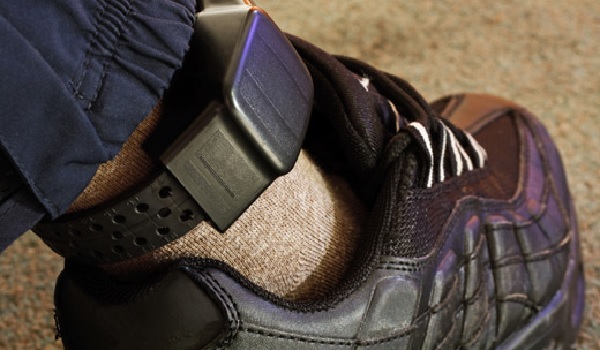Smartphone facial recognition proposed as ideal solution to delayed GPS monitoring project
Routine facial recognition check-ins using smartphones should replace the Governments long-delayed ankle-tagging scheme, according to industry leaders.
Routine facial recognition check-ins using smartphones should replace the Governments long-delayed ankle-tagging scheme, according to industry leaders. Permanent Secretary Richard Heaton has told MPs that plans to create a world-leading offender monitoring programme will not be introduced until at least 2019 due to complications caused by the 2017 general election. The project designed to help monitor the most dangerous and repeat offenders using global positioning system (GPS) technology is already five years behind schedule and has been given an extra £60 million on top of its initial £130 million budget. The new delay means another £5 million will have to be written off as fruitless spend. Zak Doffman, chief executive officer of Digital Barriers, has claimed the same function could now be achieved for less cost using smartphones equipped with facial recognition technology. He said: A periodic check-in via facial recognition software installed on an offenders smartphone, combined with its GPS location, offers a far simpler means of offender monitoring. It cant be cheated, offers an instant means of contacting the individual should they break curfew and can be delivered at a fraction of the cost. We already have the technology and, whilst it may be too early to deploy this for the highest risk offenders, it is the ideal solution for the vast majority of people tagged under such schemes. The Ministry of Justices (MoJs) GPS scheme was announced in 2011 and at the time was expected to be implemented by November 2013. It had anticipated that the project would help re-direct offenders away from prison and suggested that as many as 220,000 people could be forced to wear ankle tags. The programme was projected to save as much as £30 million but it was delayed when the MoJ cancelled its contract with supplier Steatite, leading to the loss of £4.4 million. The project was eventually passed to security company G4S with the intention of using off-the-shelf technology and introducing it in late 2018. However, the Public Accounts Committee heard earlier this month that it had again been delayed by the 2017 snap General Election. In July, the National Audit Office published a report that claimed the MoJ had not properly provided a business case for using GPS tags and that the project was too ambitious within an unachievable timescale. The MoJ currently plans to tag 65,000 offenders, but just 12,000 people are being monitored using earlier technology than cannot track peoples movements. Around 1,000 people are expected to switch over to the next-generation devices. Mr Heaton said he was startled and stunned at the over-ambition of the project and admitted that we got it wrong. However, he added: But to characterise the whole thing as a disaster is wrong. It is in mid-flight and we are determined that it is going to succeed.


